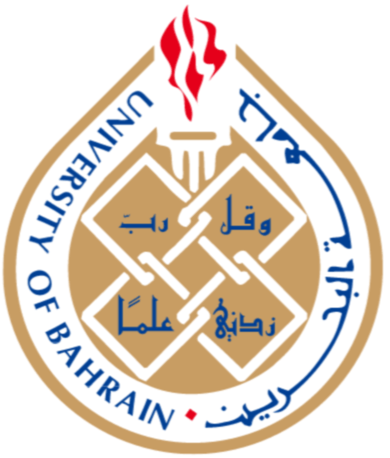Deanship of Admission and Registration
First Program undergraduate (First Period)
Summer Programme for the Academic Year 2021/2022
| Article (20) |
|---|
| The student must register the next semester courses early in the middle of the current semester, and he/she may make an amendment to his/her academic schedule within the limits of vacant seats in the academic sections during the period of deletion and addition specified in the academic calendar, and after consulting his/her academic advisor. The following rules shall be considered, when deleting and adding:
Also, the student is allowed to register in the laboratory section that fits his/her academic schedule, if he/she is unable to register in the same theoretical section of the course, provided that they obtain the department head’s approval and consider the specific procedures for doing so. |
| Article (25) |
|---|
| The student may recover the paid course fees in full or keep it in his/her balance for the next semester, if his/her withdrawal is within a month of the commencement of study, for the first period programs, and within one week of the commencement of study for the second period programs, the student forfeits his/her right to refund the fees after the expiry of those periods. Also, the student is not entitled to a refund for the summer semester course registration fees after payment. |
| Article (13) |
|---|
| The academic year is divided into two semesters, with (16) weeks for each semester. By the University Council’s decision, a “summer semester” may be offered, which consists of (8) weeks. The department, in coordination with the Dean, determines the courses offered in the semesters, considering the text of Article (24). |
| Article (25) |
|---|
| The student may recover the paid course fees in full or keep it in his/her balance for the next semester, if his/her withdrawal is within a month of the commencement of study, for the first period programs, and within one week of the commencement of study for the second period programs, the student forfeits his/her right to refund the fees after the expiry of those periods. Also, the student is not entitled to a refund for the summer semester course registration fees after payment. |
| For Foundation Program Students – Article (23) (16/d) |
|---|
| 16- final withdrawal from university, temporary withdrawal, withdrawal with the grade of (W or WE) D. The student is allowed to withdraw with a grade of (W), according to the period specified in the academic calendar, provided they withdraws from all courses of the foundation program, and this semester is to be counted within the maximum period allowed to finish the foundation program. |
| For Diploma, Associate Diploma, Bachelor’s and Postgraduate Programs Students – Article (28) |
| Before the beginning of the last quarter of the semester, the student may withdraw from any of the courses they registered in, provided that a (W) will be given, considering the provision of Article (19) of this law. The student may withdraw from all courses in a semester, and such semester shall not be counted for once only, within the maximum period for graduation. And a student may compulsorily withdraw from all courses in which they were registered, during the last quarter of the semester and before the start of the examination period, for a compelling excuse, or for a health-related reason that prevents the student from continuing studies for a period of no less than two weeks, or for the death of one of their relatives up to the second degree. The student, in this case, must submit their request to the Deanship of Admission and Registration, accompanied by proof of such from the competent official authorities. The Deanship shall decide on the excuses provided directly. The Deanship may refer the request to the concerned dean of the college to obtain the college and department’s opinion, when necessary, provided that in case of approval, the student shall get a (WE) in all the courses, and the class they compulsory withdrew from shall not be counted except for once only within the maximum period for graduation. |
| Fri, 8 Jul – Day of Arafah 1443 A.H.* | |
| Sat, 9 Jul – Tue, 12 Jul – Eid Al Adha holiday 1443 A.H.* | |
| Sat, 30 Jul – Al Hijri new year holiday 1444 A.H.* |
| For Foundation Program Students – Article (23) (16/g) |
|---|
| 16- final withdrawal from university, temporary withdrawal, withdrawal with the grade of (W or WE) g. A student’s withdrawal is considered compulsory in a certain course if they fail to attend lectures, as stipulated in the university’s study and examination bylaw; If the student’s absence is with an acceptable excuse, the compulsory withdrawal grade (WA) will be assigned to them, and if their absence is without an excuse, they will be assigned a compulsory withdrawal with failure grade (WF). In both cases, the student will not be considered to have passed the course. |
| For students of diploma, associate diploma, bachelor’s and postgraduate programs – Article (33) |
| The student must continue their study and attend classroom and practical hours according to the nature of the course and inform the course instructor of any excuses for absence, with no more than two lectures from the end date of the reason for absence. If the student is absent for a period exceeding (15%) of the course’s specified hours, they will be given a written notice, and if the student is absent for a period exceeding (25%) of the course’s specified hours, the student shall be considered to have a compulsory withdrawal, and the compulsory withdrawal is either withdrawal with an official acceptable excuse or withdrawal without an excuse. If the student’s absence was with an acceptable excuse, the compulsory withdrawal symbol (WA) will be registered, and if their absence was without an excuse, they will receive a compulsory withdrawal grade with failure symbol (WF). Before the end of the last day of classes, the student may, based on an acceptable excuse, submit to the relevant department an official petition to reconsider the given decision of a grade (WF) compulsory withdrawal with failure. The department decides on the request and then sends it to the Deanship for approval and informs the student. If the excuse is acceptable, a (WA) symbol will be registered, and if it is not acceptable, the (WF) grade will remain unchanged. The department concerned shall inform the ‘compulsorily withdrawn’ students regarding their denial of entry to the final exam. |
| Mon, 8 Aug – Tue, 9 Aug – Ashura Holiday 1444 A.H.* |
| Article (5) |
|---|
| The University Council determines the number of students accepted to study within the University’s general policy framework. The University Council may raise the maximum number of students accepted, based on the Dean’s recommendation in light of the official requests it receives for scholarships from official institutions in the Kingdom of Bahrain. The University Council also sets admission criteria for each major. |
| Article (37) |
| The Deanship decides on transfer requests considering the number that is allowed to be accepted, and in accordance with the general conditions for transfer and the special conditions for faculties, departments and academic programs. The University Council may issue approval for the transfer of some special cases, supported by justifications and reasons. |
| Article (13) |
|---|
| The academic year is divided into two semesters, with (16) weeks for each semester. Upon the University Council’s decision, a “summer semester” may be offered, which consists of (8) weeks. The department, in coordination with the Dean, determines the courses offered in the semesters, considering the text of Article (24). |
| Article (47) |
|---|
| The academic calendar sets each semester’s date for holding the final exams and announces the exam date for each course as soon as the student registers in it. Short exams and mid-term exams are held during the lectures of the same course. In multi-section courses, midterm exams may be held in a unified manner, provided that this is not during the lecture dates of other courses taken by students of the course. |
| Article (54) |
|---|
| The person in charge, or whoever acts as such, must correct the answer sheets, and send the result to the department head within (72) hours from the end of the exam’s specified period, but the period may be extended in the case of multiple sections or courses. |
| Article (66) |
| After approving all courses’ results, the Deanship will announce the semester results to the student through his/her account on the university’s website, and the student may appeal against their results in the course in accordance with the grievance provisions contained in Article (67) of this system. |
| Article (67) |
|---|
The previous provisions apply to grievances in all courses, including courses of a practical or training nature, or graduation projects. |
| Article (92) |
|---|
The student’s request to return to study shall be considered according to the following rules:
|
| Article (67) |
|---|
The previous provisions apply to grievances in all courses, including courses of a practical or training nature, or graduation projects. |
* Upon sighting of the Moon.









